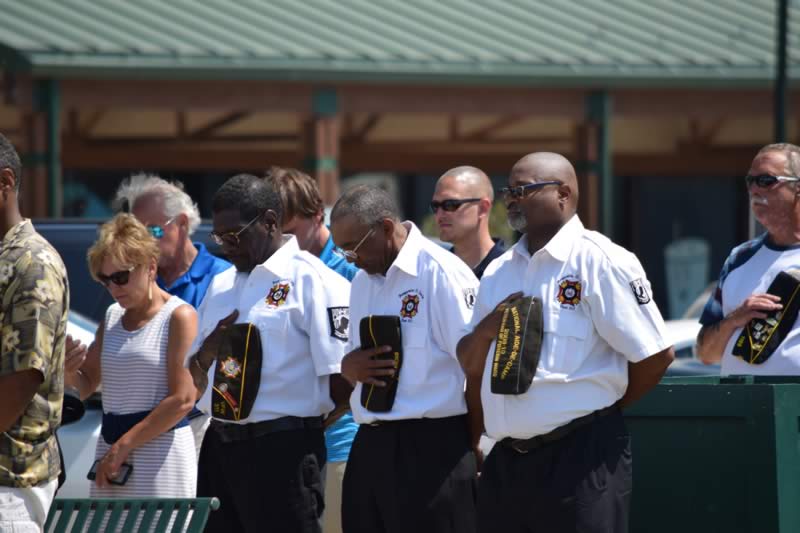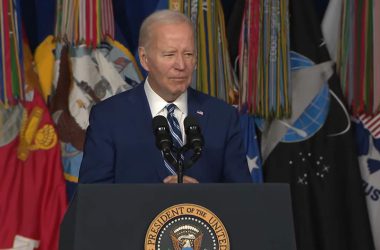NEW YORK–(ENEWSPF)–May 5, 2015. What follows are the prepared remarks of Samantha Power, U.S. Permanent Representative to the United Nations:
Seventy years ago today – on May 5th, 1945 – soldiers from the United States Army 11th Armored Division liberated the Nazi concentration camp at Mauthausen. It is estimated that nearly 200,000 prisoners had passed through Mauthausen’s gates since 1938 – including Jews, Roma, Spanish Republicans, communists, and members of the international brigades from Czechoslovakia, Poland and other countries. Around half of the prisoners – 100,000 men, women, and children – were shot, hanged, tortured, starved to death or gassed in a chamber disguised to look like a communal shower. On the door of the chamber was a small window, through which visiting Nazi officials came to watch the gassing.
The SS accelerated their killing as the liberators approached. On April 20th, three thousand prisoners from Mauthausen’s infirmary were marked for death. The camp’s gas chamber was used for the last time on April 28th. The American soldiers found the last victims in the chamber with their clothes on; the executioners, it seemed, had little reason to pretend anymore that the chamber was a shower.
Of course, the horrors of the Second World War took many forms beyond concentration camps. Tatyana Savicheva was just 11 years old when the siege of Leningrad began. Living with her mother and three siblings, she kept a journal of her experiences, which she eventually burned for warmth. But she held onto a small diary, whose sole entries read as follows:
“Zhenya died on December 28th at 12:00 p.m. 1941
Grandma died on January 25th at 3:00 p.m. 1942
Leka died on March 17th at 5:00 a.m. 1942
Uncle Vasya died on April 13th at 2:00 after midnight 1942
Uncle Lesha died on May 10th at 4:00 p.m. 1942
Mother died on May 13th at 7:30 a.m. 1942
Savichevs died.
Everyone died. Only Tanya is left.”
Tatyana’s relatives were among some 800,000 Russians who starved to death during the siege of Leningrad – 800,000. Tatyana was rescued in 1942, but her health never recovered. She died as well, on July 1st, 1944. She was 14.
Today, as we gather to mark the end of the Second World War, the scale of the loss is as incomprehensible as ever. And the details continue to haunt us. Consider that, for every resident of Dresden, there were 42.8 cubic meters of rubble. Or consider the “disquieting smells” that emerged from basements and rubble when temperatures rose from winter to spring in Warsaw – a time when, one reporter wrote, “no one…has the consolation of thinking that all of Warsaw’s quarter-million dead were properly buried.”
As we pay tribute to the tens of millions of people who died in the war, including more than 400,000 Americans – we must remember why they gave their lives. We must remember why the Allies fought their way to liberate death camps like Mauthausen; and why children like 11-year-old Tatyana helped dig trenches to defend their besieged city of Leningrad. They fought because – as Winston Churchill so eloquently put it in September 1939, shortly after the Nazis invaded Poland –“This is not a question of fighting for Danzig…We are fighting to save the whole world from the pestilence of Nazi tyranny and in defense of all that is most sacred to man…It is a war…to establish, on impregnable rocks, the rights of the individual, and it is a war to establish and revive the stature of man.”
Through countless acts of bravery and sacrifice – some documented, most that we will never know – they succeeded in defending and eventually reviving the stature of man and woman. They are the reason we are here today – and why the United Nations exists. The idea of “the equal and inalienable rights of all members of the human family” – as the Universal Declaration of Human Rights confirmed – is one of the impregnable rocks upon which our global order is anchored. So is the system of international justice that today is helping us hold warlords and dictators accountable, which was first conceived of at Nuremberg.
But if we are truly to honor their sacrifice, we must do more than memorialize. We must constantly ask ourselves whether we are doing enough; enough to defend the principles they fought for, enough to ensure the rights that they affirmed do not exist only on paper. Those principles are ridiculed by governments that gas and barrel-bomb their own people, and use starvation as a weapon of war, as the Assad regime continues to do. And they are weakened by regimes that hold a hundred thousand of their citizens in prison camps, working them to death and forcing children to watch their parents’ executions, as is happening today in North Korea.
Millions of people gave up their lives because they believed our world had no place for crimes like these. We are in awe of their sacrifice. And we owe it to them, to ourselves, and to future generations to live up to the principles that they fought for.
Thank you.
Source: state.gov








